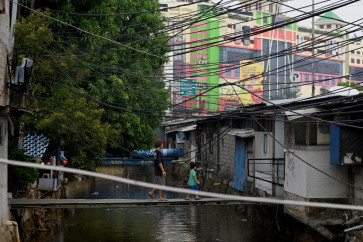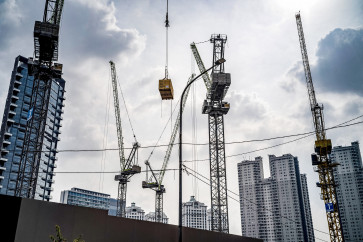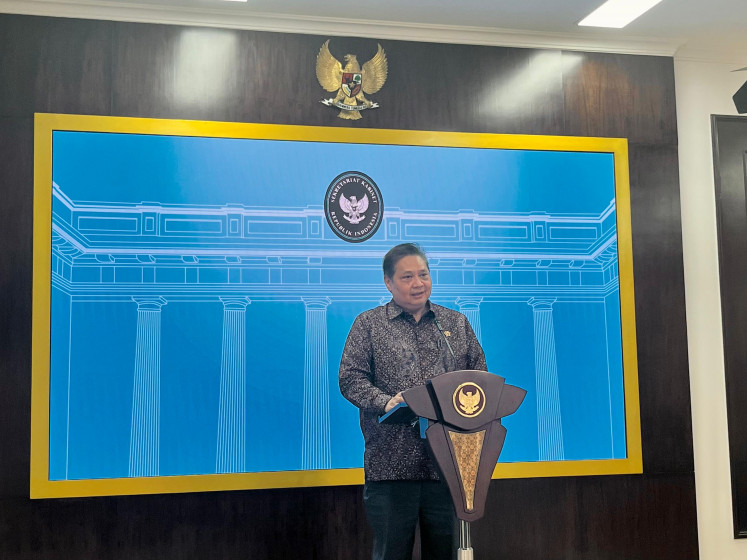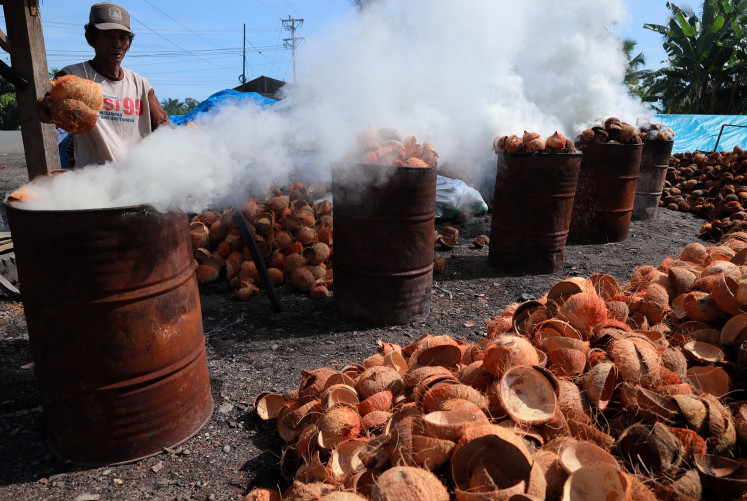The internal vs diaspora in Timor-Leste
Timor-Leste will go to the polls on Saturday for the second time in less than a year, with the country’s politicians calling on voters to break a stalemate that has ended almost a decade of hard-earned political stability
Change text size
Gift Premium Articles
to Anyone

T
imor-Leste will go to the polls on Saturday for the second time in less than a year, with the country’s politicians calling on voters to break a stalemate that has ended almost a decade of hard-earned political stability.
The election is set to be contested by the two opposing political camps that have come together ahead of the vote.
One comprises Mari Alkatiri, José Ramos Horta, Abilio de Araújo and Rogerio Tiago Lobato. Despite past differences, they now face off under the Fretilin banner, against a Parliamentary Majority Alliance (AMP) coalition headed by former commanders of the guerrilla and clandestine front, Kay Rala Xanana Gusmão, Taur Matan Ruak and José Naimori “Bucar”.
During the campaign, Gusmão criticized members of the diaspora who did not actively participate in Timor-Leste’s independence struggle. Following Fretilin’s declaration of independence on Nov. 28, 1975, Alkatiri was sent overseas as part of a high-level diplomatic mission. After Indonesia invaded the nascent nation on Dec. 7, 1975, Alkatiri and his colleagues were unable to return, and he established the headquarters of the Fretilin External Delegation in Maputo, Mozambique.
In support of Gusmão, one member of the diplomatic front, José Luis Guterres, stated in a television interview recently that many in the diplomatic front spent their time abroad involved in internal conflicts in search for future power. Gusmão’s coalition partner and leader of the Khunto Party, Naimori, accused Horta, who only last year was a Khunto supporter, of not being worthy of the Nobel Peace Laureate. Naimori based his assertion on Horta’s complicity in Fretilin tactics that, he argued, had recently brought conflict and not peace to the country.
Naimori’s statement came as a response to Horta’s calling the Khunto leader “stupid” following the party’s refusal to join the failed Fretilin government. In a rally in Dili this week, AMP spokesperson and former president Taur Matan Ruak accused Alkatiri of trying to buy Naimori’s support.
Naimori has also focussed on Horta’s and Alkatiri’s lack of political support within the country. Horta left Fretilin in the 1980s in order to build a broad coalition for independence under the leadership of Gusmão. Since independence, he has been close to a number of political parties, PD (Democratic Party), ASDT (Timorese Social Democratic Association) and Khunto, in an attempt to build a local power base.
Horta has now rejoined Fretilin following its fall from government in January this year. He is seen by many in the country, like the PD, as blowing with the political wind. However, many question the wisdom of his decision to rejoin Fretilin, a party seen as having an authoritarian and antidemocratic style.
Alkatiri has attempted to trade on his party’s name and former leaders killed during the war of independence in order to overcome his own lack of credibility throughout the country. On both occasions, Fretilin sought to govern under the leadership of Alkatiri in 2007 and 2017. He has been unable to form a stable government. He failed to obtain support from other parties in order to form a majority in parliament.
Martin Hardie, a professor of legal anthropology in Dili, believes that the conflict within Timorese politics runs deeper than the diplomatic/diaspora schism. Hardie believes that the election has pitted two groups against each other: one connected to the language and tradition of the country, which has an ethos of inclusivity; the other, which does not have this connection, and has a more westernized, winner-takes-all political ethos.
The current president of the People’s Liberation Party, Ruak, has said that Alkatiri had failed three times on Timor-Leste’s political scene and is likely to fail for the fourth time.
Throughout the campaign, AMP has successfully dismantled Fretilin bases in places such as Baukau and elsewhere. The question now is whether AMP will win an absolute majority.
The election pits a loose grouping of Fretilin and a minor party against a formal alliance of three parties led by Gusmão’s party, which together voted against Fretilin’s policy program and budget, resulting in the new election.
Timor-Leste, a former Portuguese colony, was occupied by Indonesia for a quarter century. It gained independence after a United Nations-sponsored referendum in 1999, but reprisals by the Indonesian military devastated the East Timorese half of the island of Timor.
Today, the country of 1.3 million people still faces grim poverty. Leaders, including Gusmão, who was Timor-Leste’s first president from 2002 to 2007, and prime minister from 2007 to 2015, have focused on big-ticket infrastructure projects to develop the economy, funding them from a dwindling supply of former oil riches. But progress is slow.
After a decade of strong economic activity, growth in Timor-Leste fell sharply in 2017, following a tightening of public spending, according to a new World Bank report. The March 2018 Timor-Leste Economic Report also identifies potential for development in offshore petroleum, and the tourism and coffee sectors.
The report projects that Timor-Leste’s gross domestic product (GDP) fell to minus 1.8 percent in 2017, compared to 5.3 percent the year before.
With government expenditure representing about 75 percent of the country’s GDP, a tightening in government spending in 2017 has had a significant impact on the country’s economy.
Constrained spending is likely to continue through the first half of 2018, the report adds.
________________________________
The writer is a freelance journalist in Dili. His writings have been published by the Washington
Post, the Seattle Times and the Associated Press.









